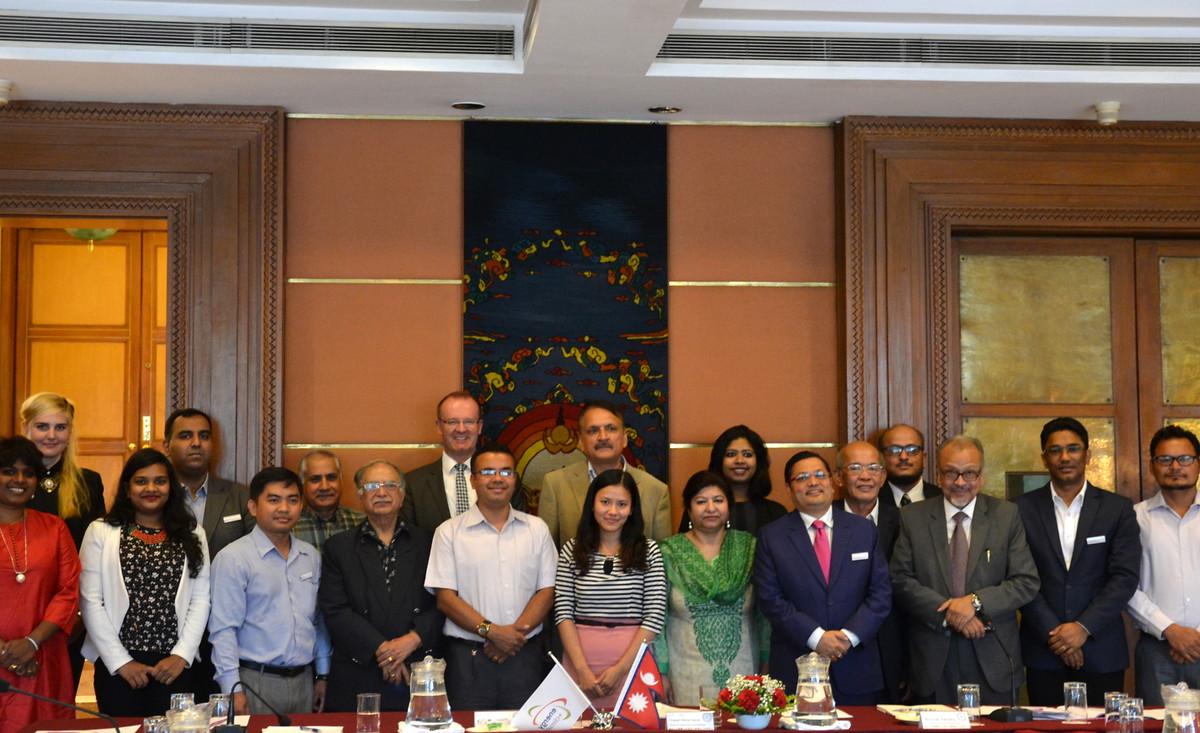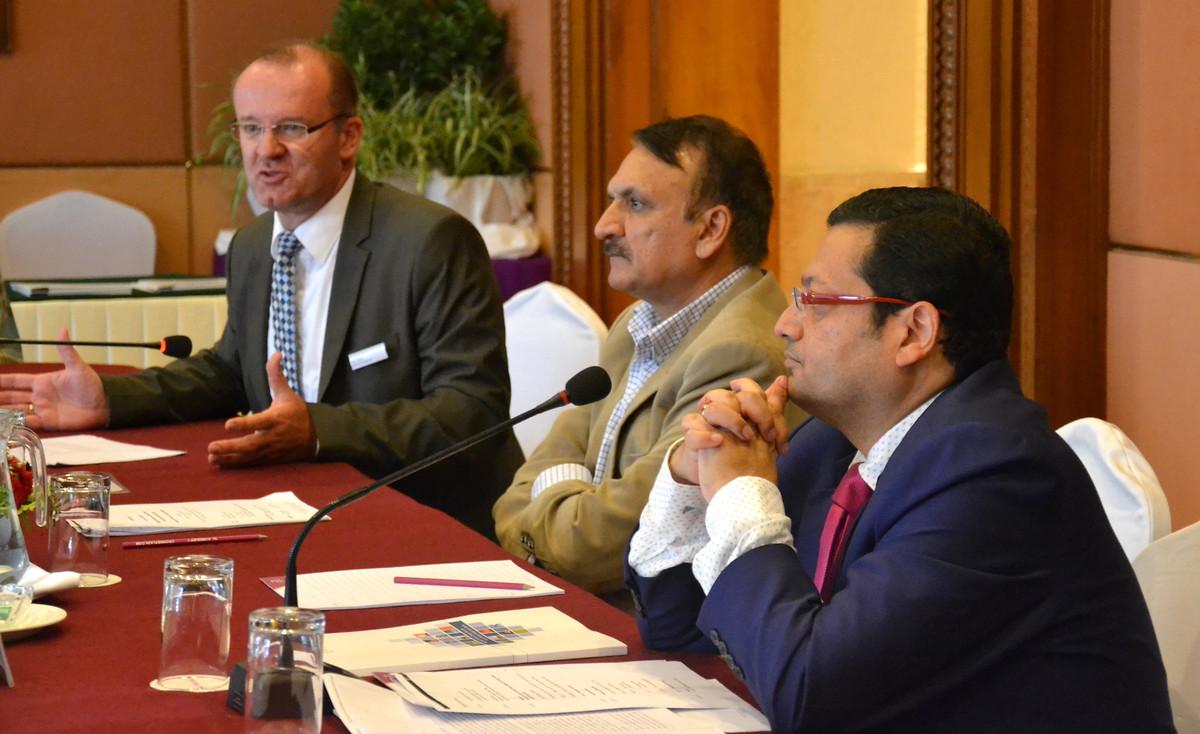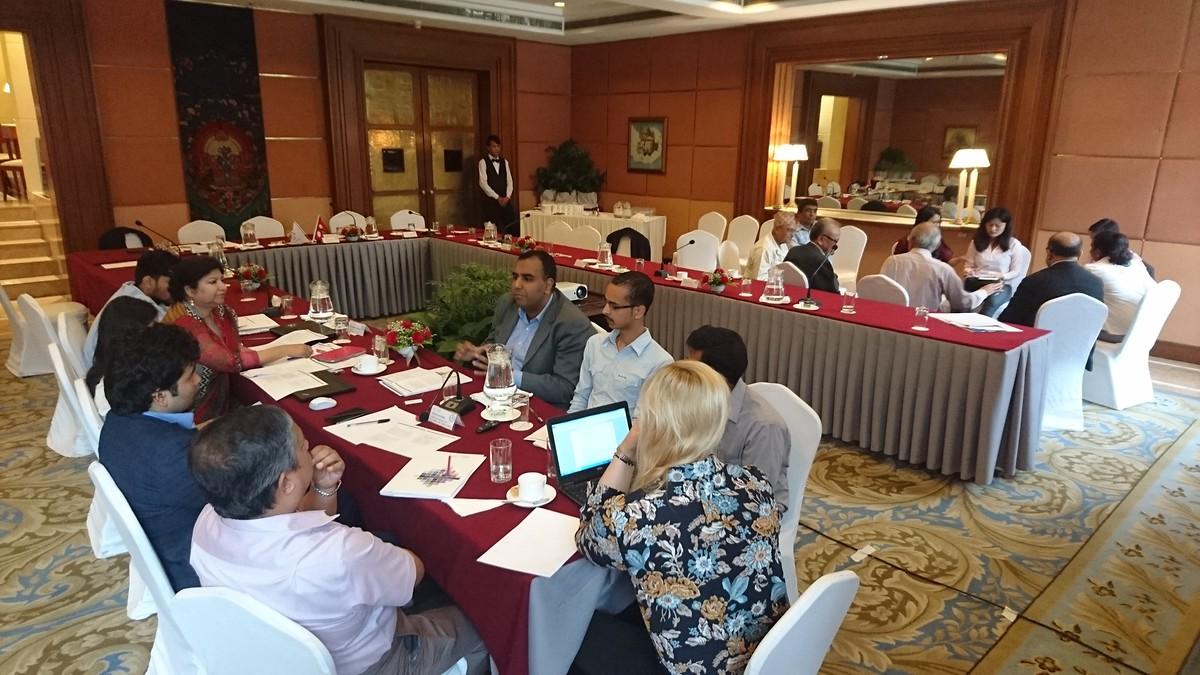Event reports
The former Foreign and Energy Minister and Member of the Nepali Parliament, Honourable Dr. Prakash Sharan Mahat, welcomed the participants and introduced into the climate change related challenges for Nepal.
As the workshop aimed at drawing a comprehensive overview on the consequences of climate change which is already taking place in the subregions, country analysis from Nepal, Bangladesh, Pakistan, India, Sri Lanka, Thailand, Cambodia and Vietnam, had been presented. All these countries are already heavily affected by diverse impacts of climate change. Their development efforts and perspectives are at stake. The nexus between food, water and climate change has been identified as a core issue for future climate change debate and is of high importance for South and South East Asia, which is still heavily dependent on agriculture.
The following key issues had been identified as crucial for better climate change adaption:
- Governance
- Business
Market-driven approaches – framed by predictable and legally enforced regulations - will decisively contribute to faster mitigation and adaption.
- NGOs
- Regional stability
As a second part of the event three working groups drafted detailed recommendations for decision makers in politics, business and NGOs. The result will become part of the final comprehensive analysis on the climate change related impacts and adaptation strategies, which will be published by KAS RECAP and CSAS at the end of 2016.
Nepal has been severely hit by an earthquake in 2015. The analysis of the damage and the progress of reconstruction provides interesting insights in how to improve disaster management at local and national level. The famous historical city of Bhaktapur, a world heritage site, was heavily damaged during the last year's earth quake. On the occasion of a study trip to Bhaktapur, Mr. Rabindra Puri, a famous Nepali architect and alumni of the University of Bremen/Germany, introduced the participants into the challenges of disaster prevention and integrated efforts to minimize the negative impacts of natural disasters – a comprehensive set of tasks, which gain more and more importance regarding the increasing probability of extreme weather conditions in the region.






